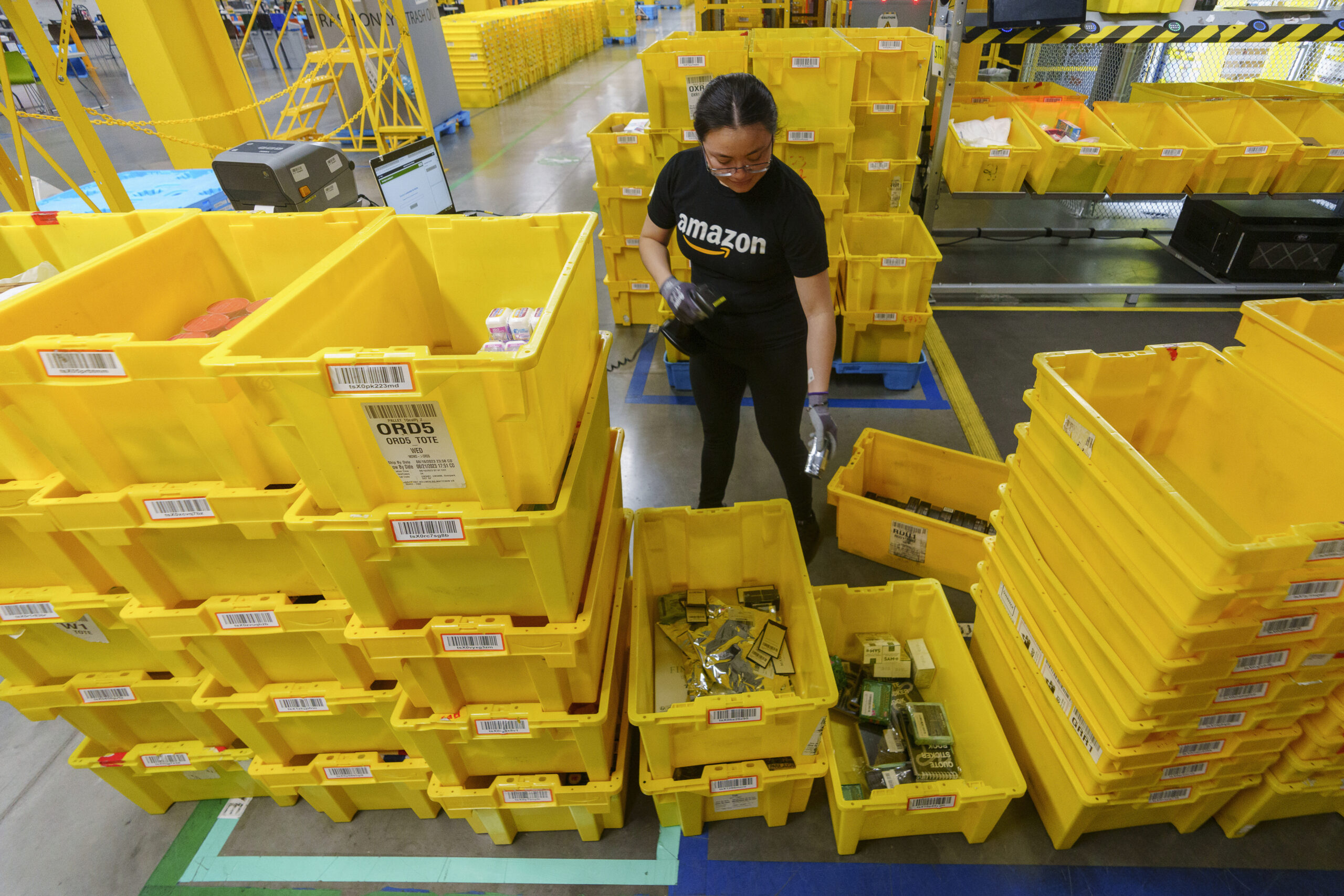‘Higher Costs, Fewer Jobs’: Business Groups Decry California Proposal To Increase Minimum Wage

California voters are weighing a ballot measure that would make the state’s minimum wage the highest of any state in the country — despite estimates that the state’s recent minimum wage increase for fast food employees cost the state thousands of jobs.
California’s current $16 per hour minimum wage for most employers is already among the top in the nation, behind only Washington state’s $16.28 rate and Washington, D.C.’s $17.50 rate. A measure on the state’s ballot next month, Proposition 32, aims to increase the minimum wage to $18 per hour by 2026 — more than $10 more than the federal $7.25 minimum wage.
Business groups, including the California Restaurant Association, the California Chamber of Commerce, and the California Retailers Association, have been campaigning against the ballot initiative, saying that it will increase prices, reduce jobs — especially among youth — and disproportionately affect small businesses.
“If Proposition 32 is passed, Californians will see higher costs, fewer jobs and a reduction of available work hours for employees in the state,” the president of CalChamber, Jennifer Barrera, said. “Voters need to reject this proposal because it will contribute to inflation, add to the high cost of living in California, and hurt state revenues. It will put even more pressure on our state budget.”
The Golden State already raised the minimum wage to $20 an hour for fast food employees after a law signed by Governor Newsom went into effect earlier this year. Ahead of the new wage increases, California fast food chains hurried to make an array of changes to offset the increased business costs — including firing delivery drivers, raising prices, cutting hours, and even turning to more automation to reduce the need for human labor, as the Sun reported at the time.
The fast food-specific law sparked a scandal dubbed “Panera-Gate,” as a provision in the law had an exemption for restaurants that operate bakeries that bake and sell bread as standalone items. The random exemption sparked backlash for seemingly giving Panera Bread a loophole to evade the standards. A billionaire who owned two dozen Panera franchises in the state, Greg Flynn, appeared to benefit from the exemption. Mr. Flynn went to the same high school as Mr. Newsom and has donated tens of thousands of dollars to him.
The Hoover Institute estimated that nearly 10,000 fast food jobs were cut after Mr. Newsom signed the fast food wage hike into law, including at chains such as Pizza Hut and Round Table that fired hundreds of delivery drivers, and other restaurants that are accelerating the use of robots to cook food. Prices also increased significantly since the law took effect, Hoover noted — by 8 percent at Wendy’s, 7.5 percent at Chipotle, and 7 percent at Starbucks.
Mr. Newsom has defended the law, saying that fast food jobs have grown in recent months: “What’s good for workers is good for business, and as California’s fast food industry continues booming every single month our workers are finally getting the pay they deserve,” he said in a statement.
As for Proposition 32, its passage is uncertain: Berkeley IGS polling of likely voters in late September indicated that support for the measure is dropping — 46 percent of respondents said they would vote for the measure, a significant six point drop from the previous month’s support rate of 52 percent. The September polling showed that a sizable chunk of likely voters — 18 percent — were still undecided about the measure, while 36 percent opposed it.
The ballot measure is backed by a progressive investor and self-described “anti-poverty advocate,” Joe Sanberg, who poured millions of dollars into a years-long effort to increase the minimum wage to $18, ABC 10 News reported. The measure received the endorsement of the Los Angeles Times’s editorial board, which said it would help address the state’s affordability crisis by “giving the state’s lowest-paid workers a modest raise.”
An analysis from the state’s nonpartisan Legislative Analyst’s Office says that the proposition would likely raise prices as businesses would face increased costs but that its effect on jobs is unclear as jobs could “go up or down.”
Related
A top recruiter says sports marketing roles are hot right…
Jobs are opening up in the sports industry as teams expand and money flows into the industry.Excel Search &
Public employees and the private job market: Where will fired…
Fired federal workers are looking at what their futures hold. One question that's come up: Can they find similar salaries and benefits in the private sector?
Mortgage and refinance rates today, March 8, 2025: Rates fall…
After two days of increases, mortgage rates are back down again today. According to Zillow, the average 30-year fixed rate has decreased by four basis points t
U.S. economy adds jobs as federal layoffs and rising unemployment…
Julia Coronado: I think it's too early to say that the U.S. is heading to a recession. Certainly, we have seen the U.S. just continue t










